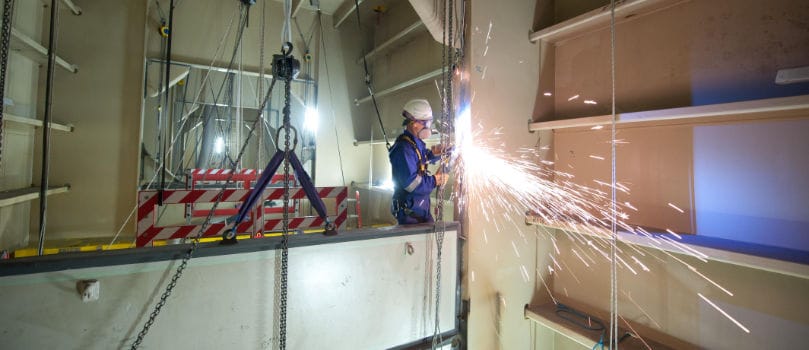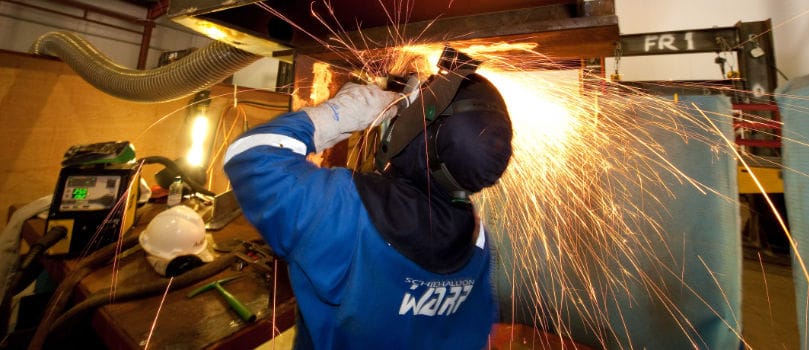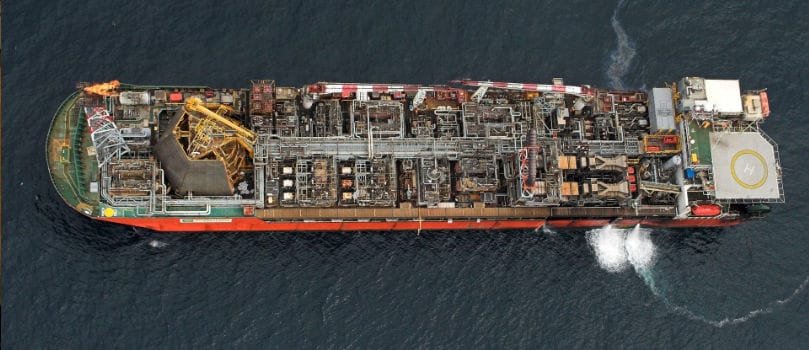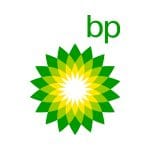BP Schiehallion
Water Ballast Tank Accelerated Repair Project
BP and MTL joined forces to achieve exceptional performance during a campaign to repair four pairs of water ballast tanks.
The Challenge
In 2007, BP engaged the project management services of Marine Technical Limits and the Schiehallion Water Ballast Accelerated Repair Project (WARP) was established. The aim was to repair 4 pairs of water ballast tanks as safely and efficiently as possible. A schedule of 22 weeks was established using benchmarks from best performance achieved in earlier campaigns, and this was independently validated as typical of what would be achieved in a UK shipyard.

The Solution
- 450 lights
- 7km of cable
- 3km of ducting
- 3.5km of welding
- 80,000 offshore man hours
- 119te of steel
- 1134 components
- 77 complex lifting operations within the tanks
The project team adopted the BP Major Common Projects Process (MPCP) to ensure that key decisions were addressed at the right time. By investing time at the very early stages of the project, a clear set of what it termed “conditions for success” was established. This helped to distinguish the project, giving it a unique identity.
“Plan the work scope in ultimate detail.”
We planned in a huge amount of detail and that allowed us to establish exactly how we were going to do the work offshore through the various phases. We had a significant amount of resource that needed to be utilised and by planning in that ultimate detail we were able to ensure all of that resource was being utilised effectively. Using the knowledge and experience within the project team, offshore build sequences were created. They developed task-by-task resource requirements, constantly challenging and verifying the most efficient work methods and trade mix.
“Prioritise and instil Safe Systems of Work.”
Creating a Safe System of Work within the ballast tanks was an integral part of the engineering discipline. There was no compromise when it came to safety inputs and safety performance offshore. The use of custom-built power, access and ventilation systems created a step change in productivity. Pocketsized workbooks showing every task in detail were developed for the entire offshore workforce. In addition, the right level of offshore supervision aided productivity and safety.

“Underpin the project with the best workforce labour and then train them to be even better.”
MTL assumed direct responsibility for recruitment of the offshore workforce. In addition to trade skills, MTL were looking for workers who would work well in a team, and the ability and willingness to multi-task was an essential requirement for every member of each team. Following individual interviews, potential candidates were invited to attend a two-week training course at MTL run facilities in Echt, Aberdeenshire. The members of selected teams worked with the equipment they were going to use, on the job they were going to do. When they went offshore they were ready to apply the skills effectively, and they also worked together brilliantly as teams.
“Plan logistics and equipment handling in meticulous detail.”
A logistics plan was developed to manage the flow of equipment and tools with a production line mentality. The contents of each container were itemised and packed in reverse order to ensure that offshore every item was unpacked and delivered to the designated location in the correct sequence. The result was that nothing was lost in transit and because everything was typically within 20 or 30 feet of where workers needed their equipment, the teams were incredibly efficient on the job.
“Link a reward structure to meaningful milestones and achievements.”
A reward structure was put in place to recognise exceptional performance and to retain the workforce for the duration of the project. It was set to be achievable to the workforce, which encouraged them to stay well engaged with the task in front of them.

The Outcome
The offshore execution phase of the project commenced in June 2009 and just 12 weeks later, work was completed, 10 weeks ahead of schedule.
